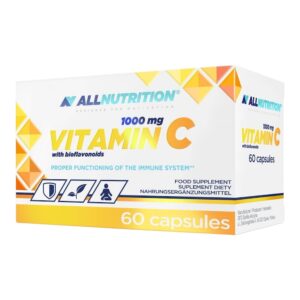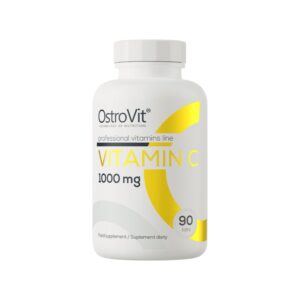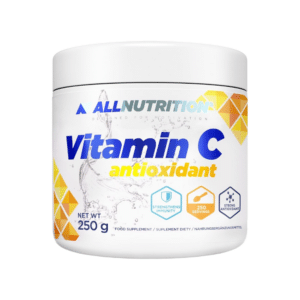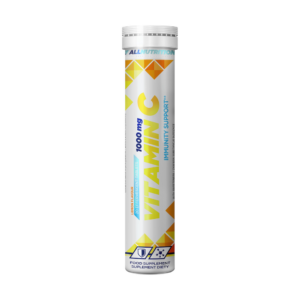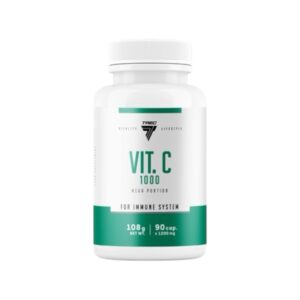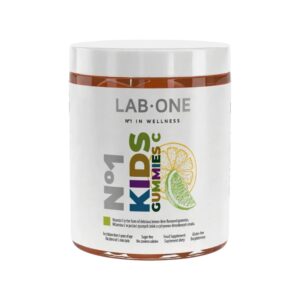Vitamin C
What is vitamin C?
Vitamin C, known as antiscorbutic vitamin or ascorbic acid, is a water-soluble vitamin essential for development and growth. It also helps to repair tissues in any part of the body, forming collagen (scar tissue) in case of wounds or healing the deterioration in bones or teeth. Vitamin C could also help cure common colds.
[showhide type=”post” more_text=”Show more text” less_text=”Hide text”]
It also works as an antioxidant, helping to prevent free radical damage. These free radicals are molecules that are produced when the body breaks down food or when it is exposed to tobacco smoke and radiation. They are the cause of ageing and can be factors leading to diseases such as cancer, heart disease or arthritis.
When to take vitamin C?
As with most supplements, the time and manner of taking vitamin C influence its effectiveness.
Because vitamin C is water-soluble, it does not need fat to be fully absorbed and used by the body. While you don’t technically need to take vitamin C with food, many products recommend that you do. Taking vitamin C (especially in high doses) on an empty stomach can cause mild irritation to the gastrointestinal tract. People with sensitive stomachs may even experience cramps, gas, or diarrhoea.
The key is to take your C when you remember to do so. For most people, it would be in the morning with breakfast. However, since vitamin C will not leave you groggy or give you more energy, you can take it with your lunch, snack, or dinner.
Still, you need to be aware that some research suggests that taking vitamin C after workouts can actually nullify its effectiveness.
Why? Vitamin C, especially in high doses, can hinder inflammation that occurs in muscle cells during and after intense training. While we generally label inflammation bad, our muscles need this exercise-related inflammation to adapt and grow.
How much vitamin C per day?
The recommended daily amount of vitamin C varies by age and gender:
- Up to 6 months: 40 mg.
- From 7 to 12 months: 50 mg.
- From 1 to 3 years: 15 mg.
- From 4 to 8 years: 25 mg.
- From 9 to 13 years: 45 mg.
- Men ages 14 to 18: 75 mg.
- Women 14 to 18 years: 65 mg.
- Men over 18 years: 90 mg.
- Women over 18 years: 75 mg.
Smokers should add 35 mg. more to their diet since tobacco smoke increases the necessary amount of vitamin C to fight the free radicals it generates. Other factors, which cause the need for a greater amount of vitamin C, are the intake of cow’s milk during the lactation period instead of the maternal milk, the lack of diverse diet or certain health disorders such as hypoabsorption (insufficient absorption), and some types of cancer or kidney disease.
,Pregnant women also need a higher daily dose of vitamin C: teenagers need 80 mg per day, while adults require 85 mg. For those who are breastfeeding, the amounts are 115 mg. for teenagers or 120 mg. for adults.
Vitamin C benefits
Vitamin C prevents scurvy and would also be effective in preventing some types of cancer and cardiovascular diseases.
There are several types of cancer that could be prevented by maintaining a diet high in vitamin C acquired through fruits and vegetables, such as colon cancer, lung cancer or breast cancer. However, once the cancer is under treatment, the efficacy of vitamin C has not been proven. In the same way, cardiovascular diseases are usually less frequent in people with sufficient daily intake of vitamin C, although no studies have proven a direct link between vitamin C consumption and lower risk of cardiovascular diseases.
Vitamin C has been shown to be effective against scurvy, which is why it receives its name as an antiscorbutic vitamin. Although this disease is rare today, it can be contracted by those who consume little or no vitamin C for several days. Its symptoms are fatigue, inflammation of the gums, spots on the skin or pain in the joints, among others. If scurvy is not treated in time, it can be fatal.
As a popular belief, it is often said that vitamin C also works as a remedy to cure common colds. Nevertheless, not all experts agree on the real effectiveness of this remedy. It is certain that vitamin C can help reduce the duration of the cold, although it all depends on the
living conditions of every person. In any case, vitamin C does not prevent you from catching a cold, but it can help you recover faster.
The excessive intake of vitamin C can be harmful, as it can cause diarrhoea, nausea, and pain. It can also interfere negatively if taken at the same time as other antioxidants or cancer treatments.
Vitamin C side effects
Serious side effects from the excessive consumption of vitamin C are very rare because the body cannot store the vitamin. However, amounts greater than 2,000 mg/day are not recommended. Such high doses can lead to an upset stomach and diarrhoea.
Best vitamin C supplements
If you want to buy the best vitamin C supplements you’re in the right place, at FitCookie we have the best vitamin C supplements that’ll help you to reach your goals.
Some of the best products are:
- BioTech USA – Vitamin C 1000mg 100 Tablets
- Ghost Energy Drink 473ml – Nootropic RTD
With us, you’ll find the best quality and prices.
Trust us as many people have!
[/showhide]

